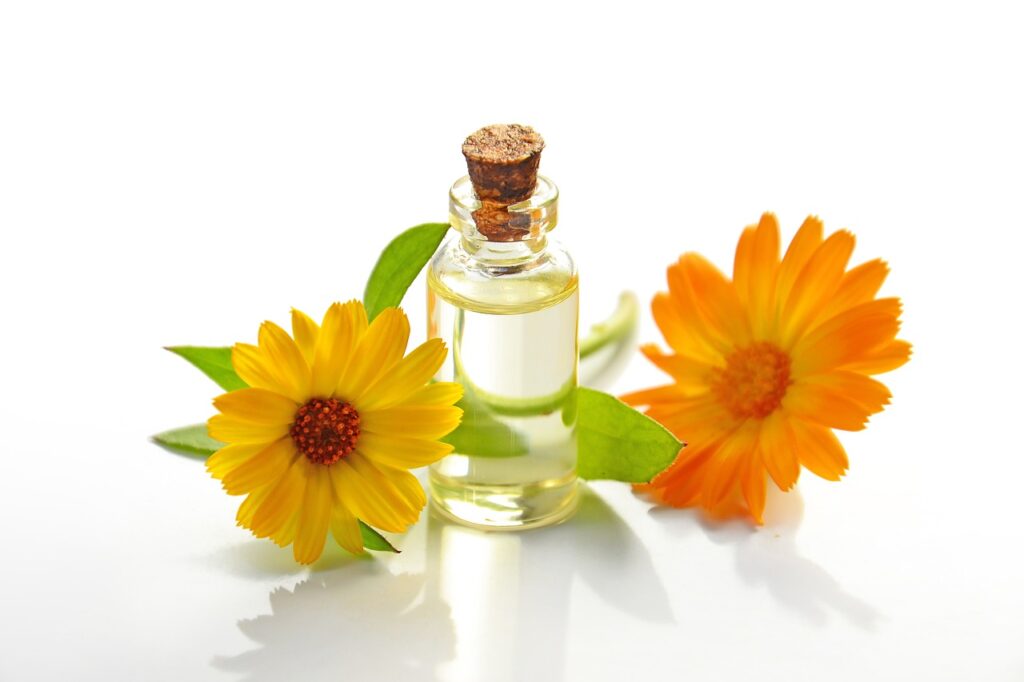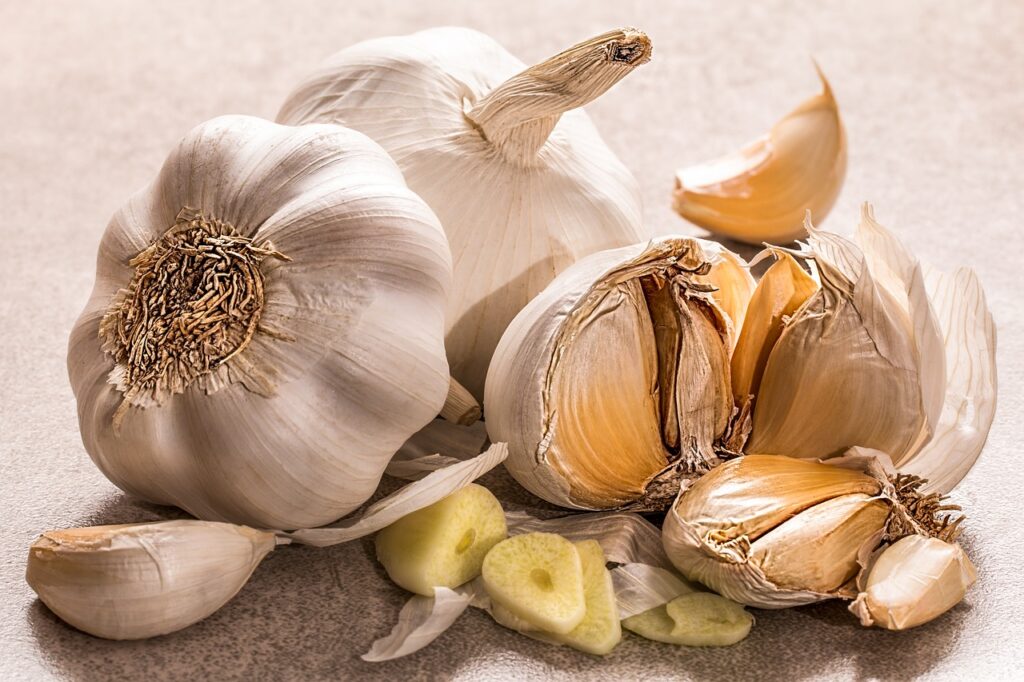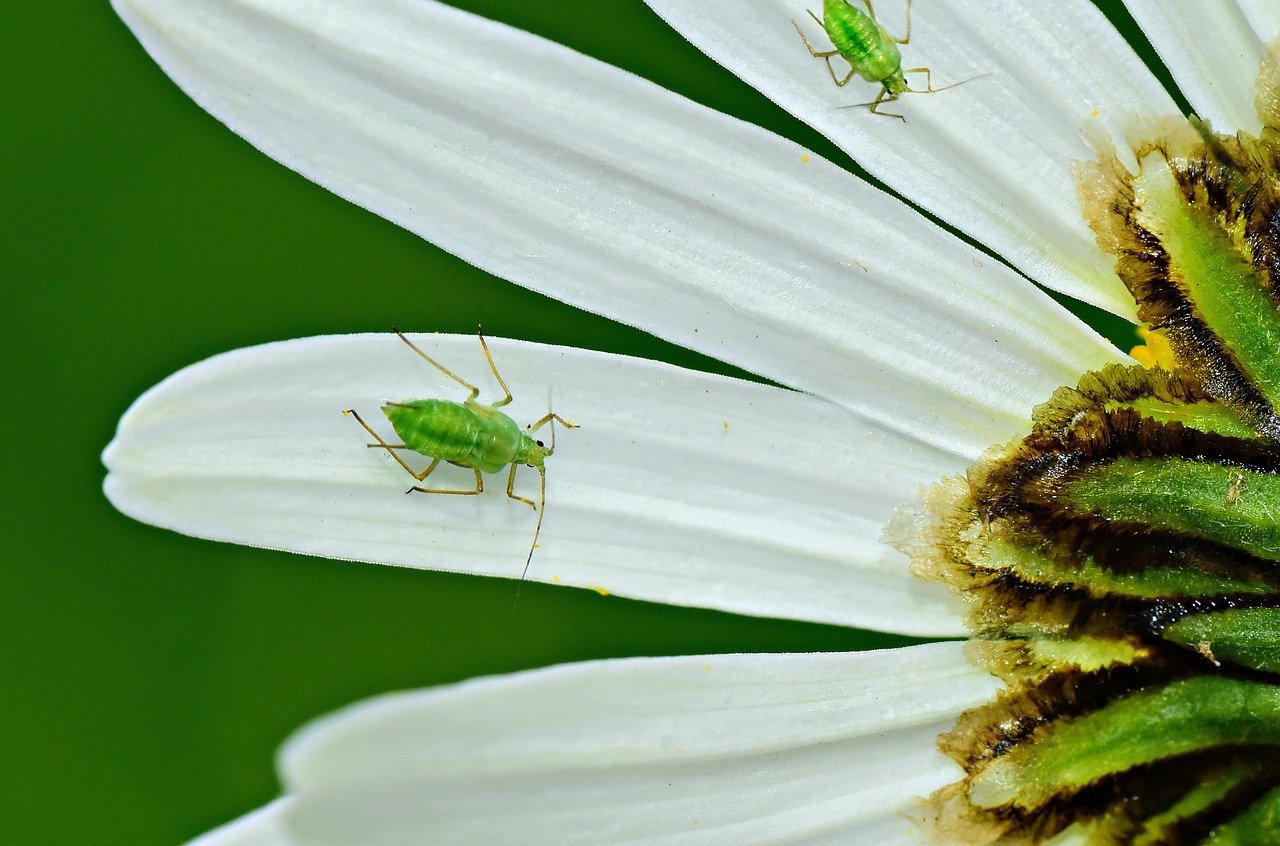Aphids are small garden pests that suck the nutrients out of your plants. Aphid infestations can result in significant damage to your garden. Aphids — common names include greenfly or blackfly — drain the sap from plants and this can result in deformed fruits and vegetables, misshapen and discolored leaves. These pests can also carry viruses between plants. And if that was not bad enough, they can attract even more pests into your — giving you more problems to deal with! Here are some things you can do to control aphids in your garden.
1. Control aphids by spraying them with water
Aphid control doesn’t have to be complicated. Many times, spraying the aphids in your plants with cold water is already enough to dislodge them. These pests also often can’t find their way back to plants once they have been dislodged.
Even if this is such a simple method to control aphids in your garden, you should still be careful. You can spray water with high pressure only if the plants can deal with it. If the plants are young and delicate, you should spray with lower pressure.
2. Spray aphids with a soap and water solution
You can also mix water with a few drops of dish soap. Put the solution in a spray bottle and spray directly on the aphids and the affected plants. The solution dissolves the bodies of aphids, eventually killing them. The solution is also great in controlling aphid eggs on the underside of leaves. Spray the solution every few days for two weeks.
3. Try an alcohol and water solution
Another solution you can try is a combination of alcohol and water. Just make sure to use alcohol with no additives, so they don’t end up harming your plants. Isopropyl alcohol and ethanol are good and accessible choices.
Simply mix 70 percent alcohol and water in equal amounts. Put the solution in a spray bottle and spray directly on the aphids and the affected plants. Before going all out with this solution, it’s a good idea to test in a small area first and observe if there are adverse effects on your plants. Some plants can be sensitive to alcohol and also soap.
4. Using essential oils to control aphids in your garden
Essential oils and neem oil have natural pest control properties. For instance, people are using essential oils to get rid of mosquitoes, who are also garden pests in their own way. To make an essential oil and water solution, mix a few drops of eucalyptus or peppermint oil with water. Put the solution in a spray bottle and spray away. In the case of neem oil, follow the instructions on the packaging on how to dilute it in water. There are also ready-to-use neem oil sprays that are commercially available.
When using oil solutions, protect your eyes, face, and hands with goggles, face masks, and gloves. They can be overpowering when you get in contact with them, and that’s partly the reason why you have to dilute them in water.

5. The hands-on approach to aphid control
You can also get rid of the aphids in your garden directly with your hands. Put on some gloves and do the manual work yourself. Remove the aphids from leaves, stems, and everywhere else you may see them and their eggs. If necessary, you can even cut off the affected areas.
Have a bucket of soapy water beside you while you are at it. And then dunk the aphids and their eggs there to kill them. You can also put the cut-off areas in the bucket.
6. Encourage beneficial insects into your garden
Not all insects are bad for your garden. There are those that are actually beneficial for your garden, such as ladybugs. The great thing about ladybugs is that they prey on aphids. They will help control the population of aphids in your garden in a natural way. But take note that ladybug larvae are the ones who prey on aphids more. You will have to sustain the ladybug population as well for them to reproduce enough and control aphids.
If this sounds complicated, you can try other methods. But if you feel like trying it, here’s the good news — ladybugs are commercially accessible. You can even buy them online.
7. Attract aphid predators into your garden
Aphids have a lot of natural enemies, including ladybugs. But there are others like lacewings, soldier beetles, and small parasitic wasps. You can attract these aphid predators by planting nectar-producing flowers in your garden like alyssum and cilantro.
But take note that these predators won’t come consistently and in large numbers if there are not enough aphids to feed on. It’s a great solution if you have a severe aphid infestation in your garden, but not so much if the aphid infestation is concentrated in a small area that is not big enough to sustain many predators.
8. Do not over-fertilize
Your gardening habits can also affect your garden’s vulnerability to aphids. For instance, an excessive level of nitrogen fertilizer in your garden can help aphids thrive. The excess nitrogen promotes new growth in your garden. And coincidentally, aphids like to feed on young shoots.
Avoid using more nitrogen than necessary. If possible, use a less soluble form and apply it bit by bit throughout the season instead of applying it all at once.
9. Grow specific plants for natural aphid control
Yes, you can plant nectar-producing flowers that can attract natural aphid predators. But there are certain plants as well that directly repel these garden pests. You can plant them in your garden as a natural aphid control method. Chives, garlic, onions, and oregano are particularly effective because their smells repel aphids.
There are also plants that attract aphids, like calendula and nasturtium. But you can also plant them strategically for natural aphid control. You can plant them on the other side of your property, so they lure the aphids away from your more valuable plants.

10. The best way to control aphids in your garden…
The best way to control aphids in your garden is by calling pest control professionals. The great thing about professionals is that they put you out of the equation. You no longer have the need to read articles online about getting rid of aphids. You let people who know what they are doing handle the infestation for you.
Many pest control professionals also offer customizable, eco-friendly, and long-lasting solutions.

